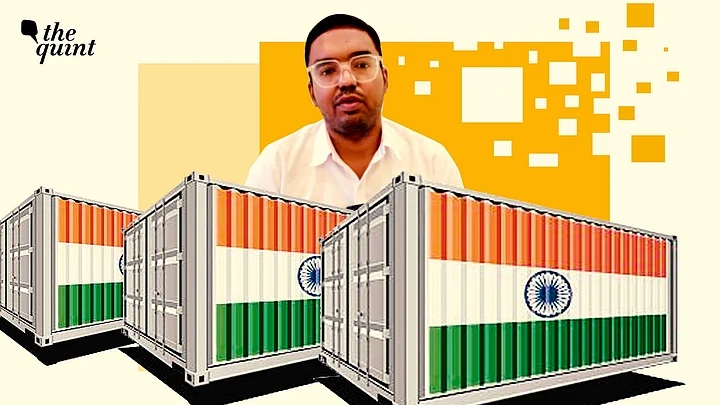Prawin Ganesan, the owner of @WinTrack, an importer of electronic goods, whipped up a veritable storm in the teacup of Chennai customs by posting on his X account that he would be winding down his operations in India because of the harassment he suffered whilst getting imports of electronic goods cleared from Chennai customs.
He subsequently shared in a televised interview broadcast by India Today that he was accustomed to meeting demands of about Rs 15,000 for clearing consignments from the customs bonded warehouse.
But when the demand rose to more than ten times as much last month, he baulked and resorted to his X account @WINTRACKINC to make his “grievance” public. The post was “clickbait” for social media watchers who flooded the net with stories of similar inappropriate behaviour and harassment at Chennai customs.
Chennai Customs Responds to Allegations
To the credit of Chennai customs, they responded to the public furore on the same platform with an explanation of the interactions they have had with the importer. Apparently, not only was the required statutory certification for import not filed, but there was an attempt to go around the problem by filing a fresh request for clearance through a related firm.
More worryingly, a bundle of previously undeclared, rechargeable batteries and charging wires was also discovered during physical examination. It was also revealed that the importer has a history of shorting customs regulations.
In 2022 there was a similar incident with Bengaluru Customs.
So, is @PrawinGanesan—and countless others like him who make a good living, working within complex laws, relying on intermediaries to guide them through the bureaucratic maze—merely immoral businesspeople who have no commitment to remaining within the law and are willing to deviate from the rules so long as the bribe to be paid is reasonable? Or is he a committed whistleblower who has risked exposing the rot in a system of suffocating regulations?
Rules and regulations made by Parliament are a dual-purpose instrument.
Their legitimate purpose is to serve societal order and the common good by protecting the weak from the strong including against State oppression. The dark side becomes visible when rules become flexible to serve the interests of the party in power or the self-interest of the enforcers of law. An impolite term for the latter is bribery.
Lessons from the Emergency
An infamous example of what happens when rules serve the powerful, is the 1975 imposition of national emergency powers in India citing “internal disturbances”. The real reason was the Allahabad High Court ruling annulling Prime Minister Indira Gandhi’s election in 1971 as an MP because of malpractices and debarring her from re-election for six years. The Supreme Court stayed implementation of the order but debarred her from voting in Parliament till further orders.
Imposing emergency provisions was a political strategy to stall whilst consolidating political power by suspending civil liberties, arresting opposition leaders, censoring the press, and delaying elections.
Less famously, but sadly far too often, strict rules and regulations are relaxed, or a Nelson’s eye turned to their breach, to serve a political purpose. India has strict rules to punish both the public servant receiving and the person offering a bribe.
The Prevention of Corruption Act, 1988 targets public servants “accepting or soliciting “undue advantage” for performing duties improperly” and the “private individuals or commercial organisations offering bribes to public officials” including third parties “facilitating or inducing bribery”. The punishment could be imprisonment up to seven years with fines.
Clearly Ganesan, whilst implicating himself, was unaware of the dual obligation of importers and the customs bureaucrats to remain within the law. Alternatively, he might be a political plant to discredit the ruling government in the light of assembly elections being due before May 2026 in Tamil Nadu. This seems far-fetched but explains the impunity with he has implicated himself. To escape equal responsibility with the customs authorities he needs a Nelson’s eye being turned by the Union government towards his indiscretions.
The ruling party in Tamil Nadu is the Dravida Munnetra Kazhagam (DMK), which is not in alliance with the BJP in the Union government. So, he could just as easily, be a plant to discredit the BJPs promise of zero tolerance for corruption.
We will know only once the high-level investigation, of the Department of Revenue in the Union Government, is shared, hopefully on X.
Regulatory Overreach and Market Consequences
There is also a view that India’s copycat attempt to manage Chinese access to the Indian market using non-tariff barriers has boomeranged into proliferating compliance requirements on imports, which increase the cost for consumers.
This might be true in some cases. But there is always a price to be paid for building Atmanirbharta. The best example is the United States, which is risking its international credibility as a leading global player to build self-reliance and jobs, at home.
The compliance certificate, not filed by the importer, is the Extended Producer Responsibility (EPR), obligatory for importers and domestic producers of electronic and plastic goods, and batteries. Issued by the Central Board of Pollution Control, it squarely places the liability for lifecycle waste management—a frontline application of circular economy principles—on the producer or importer.
The upside of domestic product and process standards, aligned with global standards, is the incentive for upgrading domestic manufacturing, as the CBAM is doing, for a greener Europe. The problem is managing the near-term pain of domestic consumers to achieve the long-term objective of global competitiveness. This is where the recent GST reductions hit the sweet spot.
(The author is distinguished fellow Chintan Research Foundation and was previously in the IAS and the World Bank. This is an opinion piece and the views expressed are the author's own. The Quint neither endorses them nor is responsible for them.)
